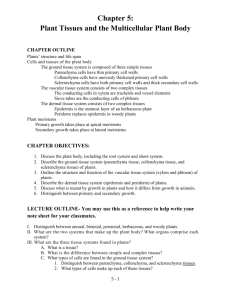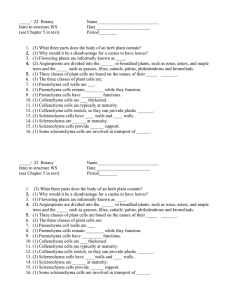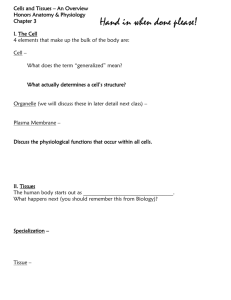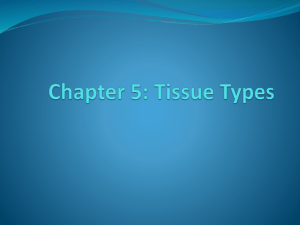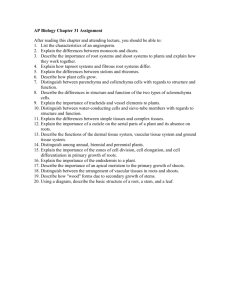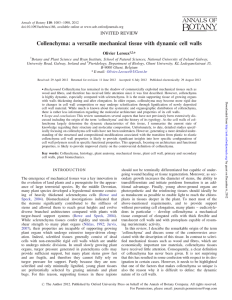Click on image to content
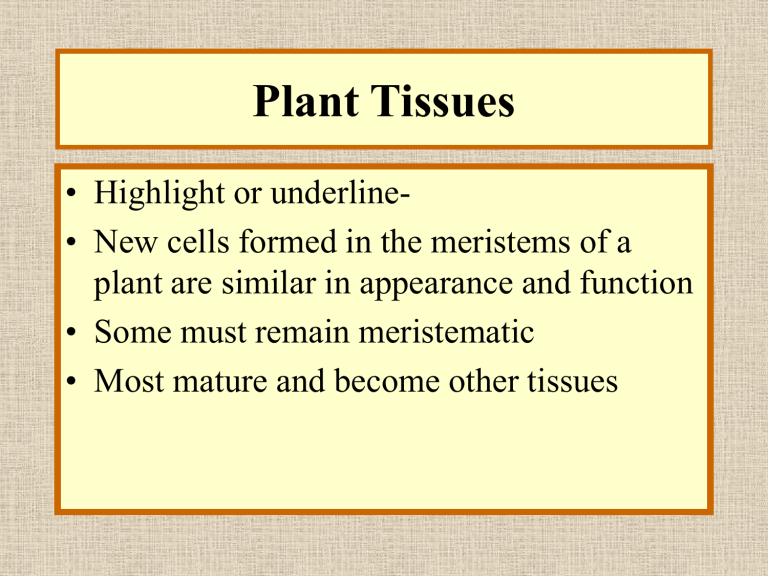
Plant Tissues
• Highlight or underline-
• New cells formed in the meristems of a plant are similar in appearance and function
• Some must remain meristematic
• Most mature and become other tissues
Plant Tissues
• Highlight or underline- Tissues may be classified
• I Meristems
• II Permanent
– A Dermal- surface
– B Ground
• Parenchyma
• Collenchyma
• Sclerenchyma
C Vascular
• Xylem
• Phloem
Plant Tissues
• Highlight or underline-
• A simple tissue is composed of only one cell type.
• Complex tissues contain more than one cell type
Meristematic Tissue
Highlight or underline-
Apical meristems are located at the tips of stems and roots.
The activity of these meristems results in an increase in plant length.
This is primary growth
The resulting tissues are called primary tissues
Meristematic Tissue
Highlight or underline-
Lateral meristems are found near the periphery of stems and roots and are responsible for increase in diameter.
This is know as secondary growth and secondary tissues
Others?
Questions 4a and b
Guard Cells Bean shaped
Surface Tissues
Observe and answer questions 4 a and b.
Observe and answer Question 5a and b
Other epidermal cells
Questions 6 and 7
6. Protects against __?__ loss
7. The guard cells regulate the size of stomata. As a result they control gas exchange and water loss
Question 8
Clue: how many kinds of cells are present?
Figure 2.9 Lower Epidermis
Epidermal
Periderm or cork
Highlight or underline –
Periderm replaces the epidermis on plants with active lateral meristems.
Cork cells fit tightly together and are dead at maturity.
Simple Fundamental Tissue
Collenchyma
Highlight or underline-
Collenchyma is a simple tissue with irregularly thickened cell walls
Collenchyma
Answer
Question 9
Parenchyma
Highlight or underline
Parenchyma is the most common kind of simple tissue. It makes up the bulk of the herbaceous (non woody) plant body.
Parenchyma
Sclerenchyma
Highlight or underline-
Sclerenchyma cells have thick secondary cell walls and are dead at maturity
In contrast to collenchyma has evenly thickened walls
Sclerenchyma
Very thick walls
Question 11
Sclerenchyma
Sclerenchyma Fibers
Figure 2.11
Question 12
Sclerenchyma Parenchyma Collenchyma
Figure 2.12
Important Note:
Highlight or underline-
Parenchyma, collenchyma and sclerenchyma are basic cell types that often form simple tissues. Frequent references will be made of these three tissues. Know their characteristics and main functions.
